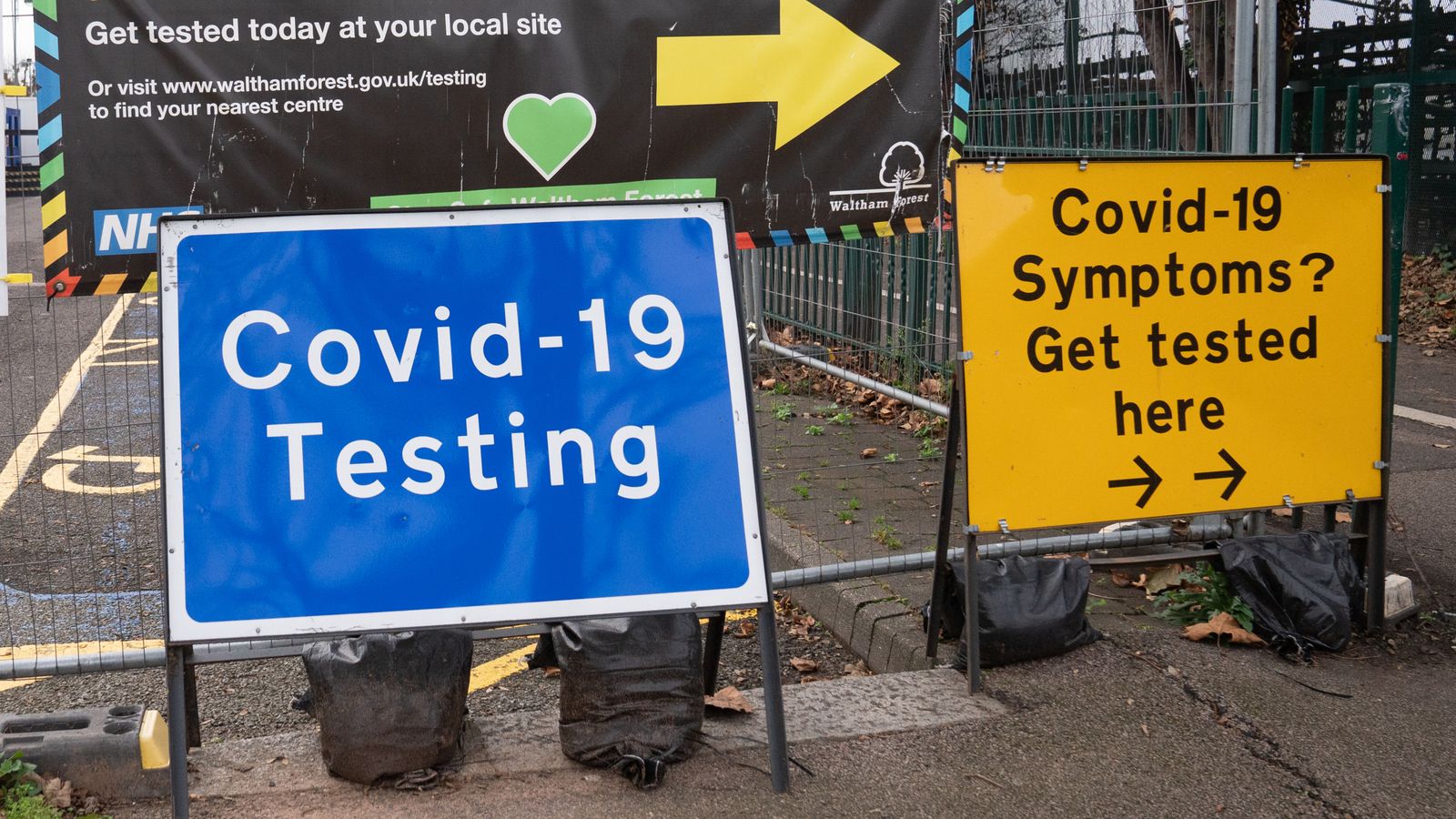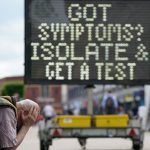The UK has recorded 142,224 new COVID-19 cases and 77 more coronavirus-related deaths in the latest 24-hour period, according to government data.
The figures compare with 141,472 cases and 97 deaths reported on Sunday.
This time last week, 3 January, the UK recorded 157,758 cases and 42 fatalities.
COVID news latest: UK company pulls rapid test over Omicron detection concerns
However, it is worth noting that last week’s figures were incomplete as deaths data only covered England whilst the number of cases included Scotland, but not Wales or Northern Ireland as they did not report any statistics over the New Year bank holiday.
The latest figures mean since the start of the pandemic, 150,230 people have died within 28 days of testing positive for the virus.
A further 141,495 people have been given a third, or booster, dose of a COVID-19 vaccine – taking the total to 35,664,164, equivalent to 62% of the UK population aged 12 and over.
Italy: Unvaccinated people banned from public transport, coffee shops and gyms
COVID-19: Private hospitals to help NHS cope with Omicron strain in new deal
COVID-19: Boris Johnson dodges question on whether he attended Downing Street party while country was in lockdown
Meanwhile, 47,718,730 people have now been double jabbed – taking the total to 83% of those 12 and above.
Common cold could protect against COVID
It comes as new research found people with high levels of T cells from common colds are less likely to catch the virus.
Imperial College London said it was an “important discovery” but warned “no one should rely on this alone” and insisted people should still get vaccinated as the “best way” to protect against COVID.
Dr Rhia Kundu, first author of the study, from Imperial’s National Heart & Lung Institute, said: “Being exposed to the SARS-CoV-2 virus doesn’t always result in infection, and we’ve been keen to understand why.
“We found that high levels of pre-existing T cells, created by the body when infected with other human coronaviruses like the common cold, can protect against COVID-19 infection.”
Separately, research from the Department of Health and Social Care found that almost all pregnant women in hospital with COVID are unvaccinated.
Statistics from the UK Obstetric Surveillance System show that 96.3% of pregnant women hospitalised with COVID-19 between May and October were unvaccinated – and a third of them required respiratory support.
Ministers consider reducing isolation period
The prime minister has confirmed ministers are now considering reducing the self-isolation period for fully vaccinated people who test positive for the virus.
Follow the Daily podcast on Apple Podcasts, Google Podcasts, Spotify, Spreaker
Boris Johnson said: “There’s a similar argument to be had about the quarantine period – whether to come down from seven days to five days.
“The thing to do is to look at the science. We are looking at that and we will act according to the science.”
Read more:
‘End in sight’ but there will be more ‘bumps’ for next three months
Boris Johnson dodges question on attendance at Downing Street party






















